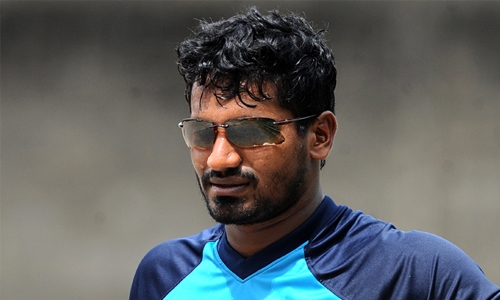Sri Lanka eyes damages for doping blunder
Colombo : Sri Lanka's cricket board said Wednesday it will seek compensation from the world anti-doping agency (WADA) over the wrongful suspension of wicket keeper Kusal Perera.
Perera was suspended during Sri Lanka's tour of New Zealand last December after WADA said he had tested positive for a banned substance, a finding the laboratory later revised.
The International Cricket Council lifted the ban on Perera in May after Sri Lanka intervened to prove the tests were wrong, but the country's cricket board has said it spent $100,000 as legal and technical costs in defending Perera.
"The ICC and Sri Lanka Cricket are together in this right now to claim money from WADA," said SriLanka Cricket President Thilanga Sumathipala.
He did not say how much compensation the board would claim, but he said it would be an amount "never ever granted to anyone in the history of world cricket".
Perera told reporters in May that he had suffered "tremendous mental stress" after the positive result but insisted he always knew he would be eventually cleared.
As a result of the suspension, Perera was ruled out of Sri Lanka's World Twenty20 title defence earlier this year.
After he was cleared, he joined the national team that was touring England and played in the 3rd Test, scoring 42. He also played in the ODI series as well as one T20 match.
The ICC in May described the test as "an atypical finding" that could not be construed as evidence of doping.
"We regret what Mr. Perera has had to endure, and would like to commend him for the manner in which he has conducted himself throughout this period," ICC chief executive David Richardson said in a statement at the time.
"We wish to make it clear that there is no evidence that Mr. Perera has ever used performance-enhancing substances and we wish him well in his future cricketing endeavours."
The ICC had sought an explanation from WADA and the Qatar laboratory that tested Perera's sample.
However, the Doping Analysis Laboratory said there was nothing wrong with their results and blamed a problem with "interpretation".
Related Posts

